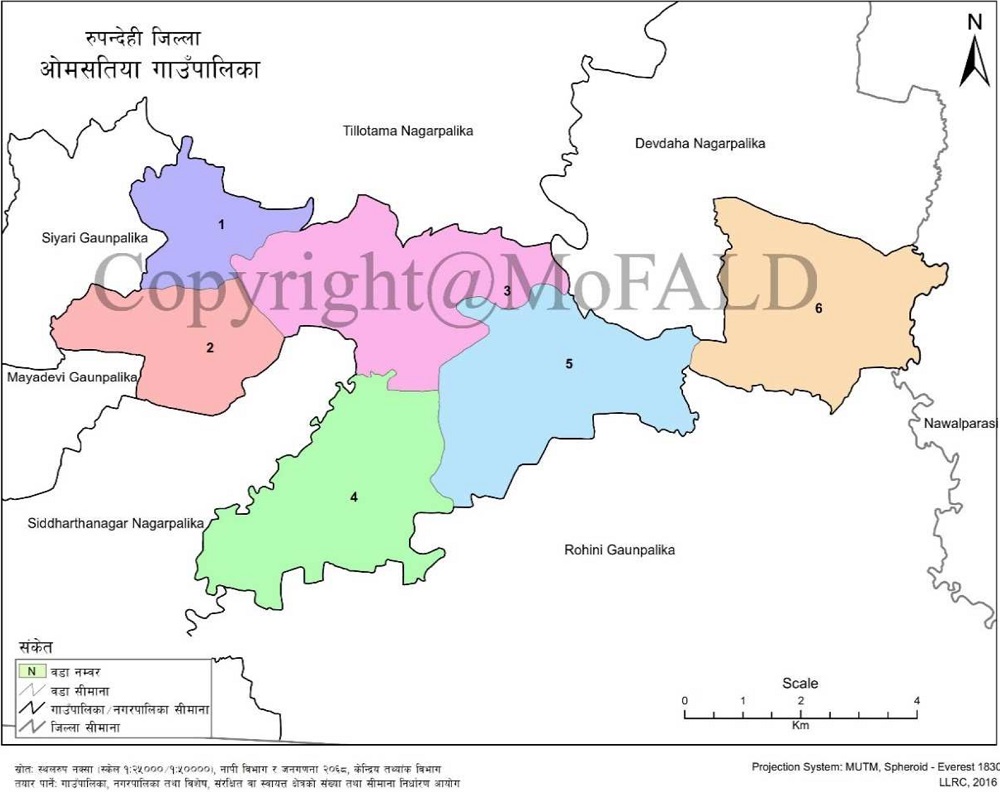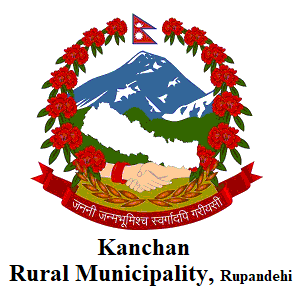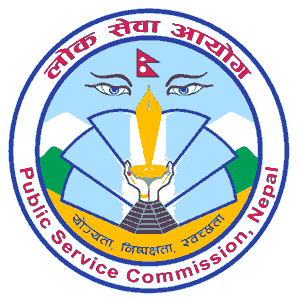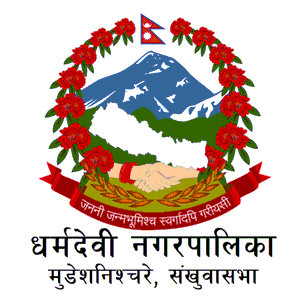Overview
Omsatiya Rural Municipality, located in Rupandehi District within Lumbini Province, Nepal, represents a unique blend of cultural diversity and natural beauty. Established as part of Nepal's local level restructuring in 2017, the rural municipality was formed by merging the former Village Development Committees (VDCs) of Padsari, Hati Farsatikar, Basantpur, Patkhauli, and Chhoti Ramnagar. This reorganization was part of a nationwide effort to enhance local governance and development through the creation of 753 new local levels.
Geographical and Administrative Details
Omsatiya Rural Municipality spans an area of 48.54 square kilometers and is home to a population of 34,191 people. The administrative center is located at the former Hati Farsatikar VDC office, which now serves as the hub for the municipality's governance and administrative activities. The rural municipality is divided into six wards, each representing a distinct geographical area that was part of the former VDCs. The new ward divisions were made to facilitate better local governance and to address the specific needs of the diverse communities within the municipality.

Cultural and Demographic Composition
The population of Omsatiya Rural Municipality is predominantly composed of Madheshi communities, including Yadav, Kurmi, Harijan, Pasi, Murav, Brahmin, and Muslim groups, among others. The area is known for its rich cultural heritage, where residents uphold a lifestyle, dress, and social customs that closely resemble those found across the border in India. This cultural affinity is reflected in the various festivals, religious practices, and social rituals observed by the community.
Omsatiya is also home to a diverse mix of ethnic groups, including Tharu, Brahmin, Chhetri, Magar, Madheshi, and Terai communities, all of whom coexist while maintaining their distinct cultural identities. The municipality is a microcosm of Nepal's larger societal fabric, showcasing the country's ethnic and religious diversity.
Economy and Livelihood
Agriculture forms the backbone of Omsatiya's economy, with most residents engaged in farming activities. The fertile plains of the municipality support the cultivation of various crops, and the availability of underground water resources presents significant potential for expanding agricultural production. Many households rely on hand pumps and public artesian boreholes for their water supply, which is vital for both domestic use and irrigation.
In addition to agriculture, residents are involved in various small businesses and trade, contributing to the local economy. The municipality's strategic location, bordering Nawalparasi District to the east and Siddhartha Municipality to the west, further enhances its economic prospects.
Natural Beauty and Environment
Omsatiya Rural Municipality is blessed with natural beauty, characterized by its flat terrain and lush greenery. The area enjoys a year-round verdant landscape, thanks to the abundant water resources and the region's agricultural practices. The municipality's proximity to significant cultural and religious sites, such as Lumbini, the birthplace of Lord Buddha, and Devdaha, his maternal home, adds to its cultural and spiritual significance.
Social Infrastructure and Development Potential
The social infrastructure in Omsatiya Rural Municipality is evolving, with ongoing efforts to improve access to basic services such as water, education, and healthcare. The municipality has the potential to develop its agricultural sector further, leveraging its water resources to enhance productivity and ensure food security.
The community's respect for religious and cultural diversity is evident in the harmonious coexistence of different ethnic and religious groups. This social cohesion, coupled with the municipality's natural resources, positions Omsatiya as a rural area with significant development potential.
Conclusion
Omsatiya Rural Municipality is a vibrant and diverse community that embodies the cultural richness and natural beauty of Nepal. With its strategic location, agricultural potential, and commitment to cultural preservation, Omsatiya is poised for continued growth and development. The municipality's blend of tradition and progress makes it a unique and important part of Lumbini Province, contributing to the broader narrative of Nepal's local governance and rural development.






